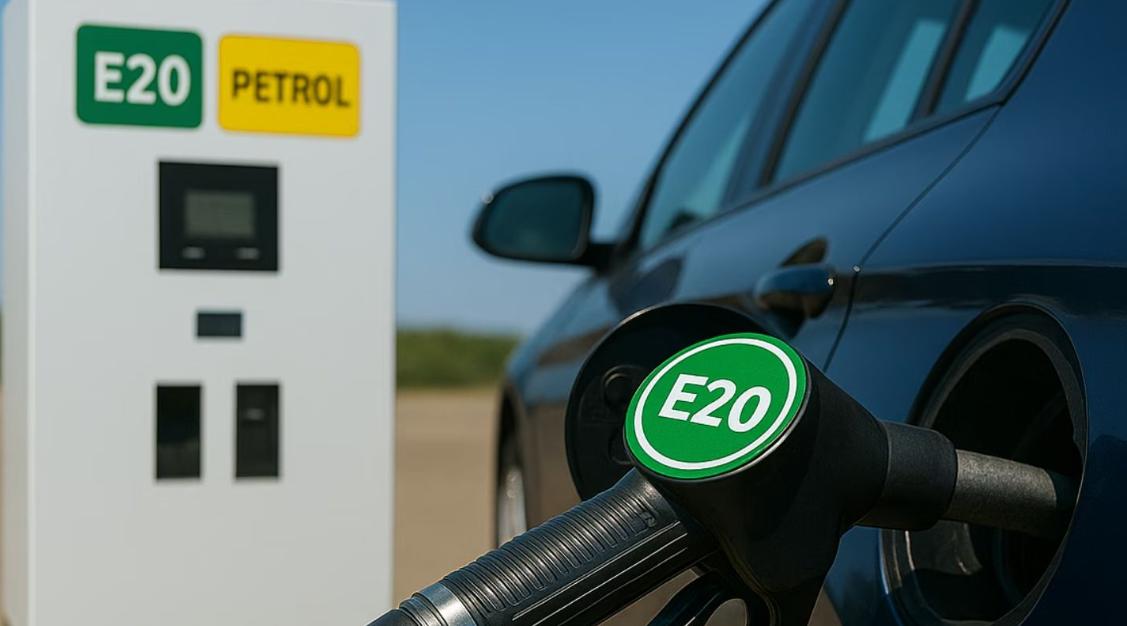 Image Source: Business Standard
Image Source: Business Standard
India’s nationwide rollout of E20 fuel, containing 20% ethanol mixed with petrol, marks a significant step in the country’s energy transition aimed at reducing carbon emissions and oil imports. However, the shift has sparked questions and concerns among vehicle owners about compatibility, performance impact, and warranty coverage, especially for cars older than 2023 models. In response, leading car manufacturers and the auto industry lobby have assured customers that warranties on older vehicles will continue to be honoured even when fueled with E20, providing much-needed reassurance amid growing uncertainty.
Key Highlights on E20 Fuel and Vehicle Warranty Assurances
The auto industry lobby, representing major manufacturers, confirmed an official stance that carmakers will honor warranties even if older vehicles not originally designed for higher ethanol blends (E20) are fueled with E20 petrol.
E20 fuel replaced earlier multiple petrol grades (E5 and E10) at most fuel pumps across India as of mid-2025, forcing vehicle owners to adapt to this new fuel blend.
Some vehicle owners experienced reported drops in fuel efficiency and concerns about engine issues linked to ethanol’s different chemical properties, sparking debate over warranty protection.
Automakers are actively informing dealers across India about E20 fuel compatibility guidelines and clarifying warranty terms for older models.
Government officials, including the Road Transport and Highways Minister Nitin Gadkari, have emphasized ongoing efforts to increase ethanol blending to 27%, highlighting environmental benefits despite slight fuel economy declines.
Independent tests by Automotive Research Association of India (ARAI) suggest mileage drops range between 1-6% depending on engine design and age, and no significant engine wear over time when fueled with E20.
Warranty policies generally exclude damage caused by use of fuels not recommended in owner manuals, but automakers clarified they would not void warranties solely based on E20 use in older vehicles.
Some carmakers specify that owners check vehicle manuals for fuel recommendations, as models manufactured after April 2023 are designed and calibrated specifically for E20 fuels.
The Indian automotive sector faces challenges including a slowdown in sales, rare-earth material shortages, and a transitional learning curve on E20 adoption.
The Supreme Court is scheduled to hear petitions challenging E20 fuel rollout, addressing consumer concerns over transparency and safety.
Understanding E20 Fuel Impact and Vehicle Compatibility
Ethanol in petrol alters combustion properties, often requiring compatible engine materials and recalibrated fuel systems to optimize performance.
Vehicles certified for E20 post-2023 are manufactured with ethanol-resistant fuel hoses, gaskets, and engine management systems.
Older vehicles designed for E5 or E10 fuels may experience slight mileage reduction but generally do not suffer drastic mechanical damage.
Regular vehicle maintenance can prevent potential issues related to ethanol’s dry and corrosive nature.
Consumer Guidance and Best Practices
Vehicle owners should consult their vehicle’s owner’s manual for fuel compatibility and follow manufacturer recommended fuel grades.
Use authorized fuel stations with E20-certified petrol to minimize contamination risks.
Monitor vehicle performance and maintenance costs after transitioning to E20 fuel.
Report any unusual engine behavior promptly to authorized service centers.
Conclusion
India’s transition to E20 fuel is a critical policy milestone promoting cleaner energy and sustainability. Amidst initial teething issues and consumer anxiety, the automotive industry's reassurance on warranty coverage for older vehicles using E20 fuel offers solace to millions of motorists. Clear communication between manufacturers, dealers, and consumers combined with ongoing government support is key to ensuring a smooth, confident transition to ethanol-blended fuels across India.
Sources: Business Standard, Reuters, Autocar India, The Hindu
Advertisement
Advertisement








